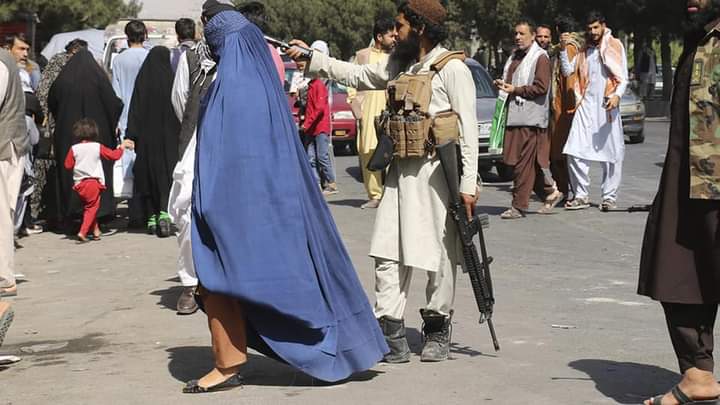
In Afghanistan, the Taliban authorities say women seeking to travel long distances should not be allowed on road transport unless they are accompanied by a close male relative.
The guidance issued on Sunday by the Ministry for the Promotion of Virtue and Prevention of Vice, which also called on vehicle owners to refuse rides to women not wearing headscarves, has drawn condemnation from rights activists.
The move followed the Taliban barring many women in public-sector roles from returning to work in the wake of their August 15 seizure of power, and as girls remain largely cut off from secondary schooling.
It also came despite the group seeking to project a moderate image internationally in a bid to restore aid suspended when the previous government imploded during the final stages of a chaotic military withdrawal by the United States.
“Women travelling for more than 72km (45 miles) should not be offered a ride if they are not accompanied by a close family member,” ministry spokesman Sadeq Akif Muhajir said, specifying that the companion must be male.
The new guidance, circulated on social media networks, also asked people to stop playing music in their vehicles.
Weeks ago, the ministry asked Afghanistan’s television channels to stop showing dramas and soap operas featuring female actors. It also called on female TV journalists to wear headscarves while presenting.
Muhajir said on Sunday the hijab would likewise be required for women seeking transport.
The Taliban’s definition of the hijab – which can range from a hair covering to a face veil or full-body covering – is unclear, and most Afghan women already wear headscarves.
‘Making women prisoners’
Human Rights Watch has slammed the guidance.
“This new order essentially moves … further in the direction of making women prisoners,” Heather Barr, the group’s associate director of women’s rights, told the AFP news agency.
It “shuts off opportunities for them to be able to move about freely, to travel to another city, to do business, (or) to be able to flee if they are facing violence in the home,” Barr added.
Earlier this month, the Taliban issued a decree in the name of their supreme leader, instructing the government to enforce women’s rights, but it did not mention girls’ access to education.
On Sunday, Afghanistan’s Minister for Higher Education Abdul Baqi Haqqani said the authorities were discussing the issue.
“The Islamic Emirate is not against women’s education but it is against co-education,” Haqqani told reporters.
“We are working on building an Islamic environment where women could study … it might take some time,” he said, without specifying when girls might return to school and university classes across the country.
Women’s rights were severely curtailed during the Taliban’s previous stint in power in the 1990s.
They were forced to wear the burqa, a full-body veil that covers the face as well, could only leave home with a male chaperone and were banned from work and education.
Respect for women’s rights has repeatedly been cited by key global donors as a condition for restoring aid.
The United Nations has warned that Afghanistan faces an “avalanche of hunger” this winter, estimating that 22 million citizens face acute food shortages.
Source: AFP



